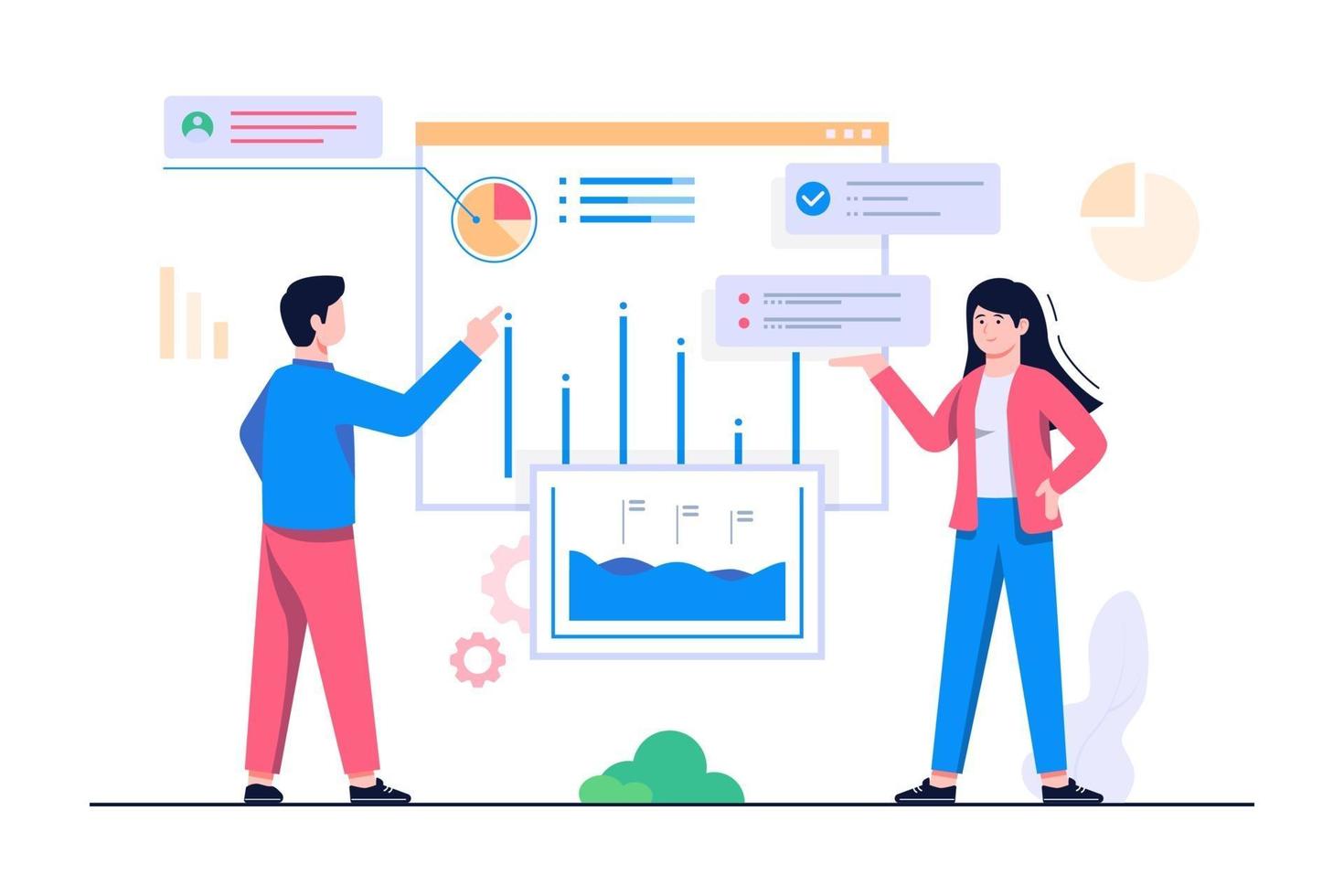Operational business intelligence is the key to success for any company working in the real world. Being able to see what is happening in the business at all times is crucial to making good decisions and reaching the bottom line. Smart and calculated decision-making is an increasing trend in business operations. If you want to know how to use operational business intelligence in your company, read on.
What is Operational Business Intelligence
Operational Business Intelligence or OBI is the collection and analysis of data within an organization. It allows organizations to scrutinize their business data to find out who is buying what, where, how, and why. It lets companies evaluate their supply chains and cross-check data from multiple sources. Its goal is to help companies make better decisions.
The concept of OBI has been around for more than a decade. It gained popularity this year because it can be used to improve business processes while reducing costs. OBI integrates data from multiple sources (OLAP, HCM, ERP, data warehouses, etc.) and evaluates it against a common set of standards. It provides a single view with a set of practical metrics for decision-making.

What is the difference between Business Intelligence and Operational Business Intelligence?
In the realm of business intelligence, it’s easy to get confused between the two business intelligence (BI) methods: business intelligence and operational business intelligence.
Operational Business Intelligence (OBI) is the process of gathering, analyzing, and communicating the critical data required to make timely and accurate business decisions. In many cases, business intelligence (BI) is defined as the process of collecting and analyzing business data to improve decision-making using predictive analytics. A key difference between BI and OBI is that OBI is defined by its focus on the business decision, not the tools or technologies used to collect and analyze the data.
What are the different facets of Operational business intelligence?
Operational BI is a concept of management that focuses on making faster and better decisions. It is a data-driven analysis to improve the profitability and efficiency of the organization. It is a combination of three different facets:
- Making decisions to optimize the business – Like many other forms of business decision-making, operational business intelligence (OBI) is often subjective and influenced by the context in which it is employed. From the individual customer experience to the more abstract view of the business as a whole, OBI is a data analytics tool that can be used to help companies make better business decisions.
- Using analytics to drive operations – As businesses get more data-driven, the demands for operational business intelligence are also increasing. Not only is it crucial for senior management to understand the performance of their business, but it’s also imperative to know the health of the company’s infrastructure, customer relationships, and other key factors to help prevent potential problems from occurring.
- Making the analytics available to the business users for decision making – A key challenge of operational business intelligence (OBI) is the choice of how best to present the data. While traditional BI is often used to drive decision-making, OBI is used to drive other aspects of business operations using analytics and AI. It helps to optimize processes, reduce costs, and improve customer satisfaction. It is the underlying analytics that drives business decisions.

In today’s competitive corporate environment, where the market and customers both change rapidly, a company’s most important asset is the ability to make decisions. Yet much of the decision-making is done by a small group of senior managers and managers. What is needed is a system that brings together the most relevant information from across the enterprise so that the most informed decisions can be made. This is Operational Business Intelligence.
What is the goal of Operational business intelligence?
You can spend hours and hours collecting data from databases, and if you get it right, you could potentially find some really great Business Intelligence reports. However, just because something works, doesn’t mean it’s necessarily accurate. In the case of operational business intelligence (OBI), what is being measured often involves some form of tracking, and there should always be a goal in mind of what the actual data is supposed to represent.
The goal of operational business intelligence is to measure and manage an organization’s performance, and the tools for that come in many forms. A business intelligence system needs to be both real-time and historical since it must measure both current performance and historical performance. A good system will have the ability to draw upon data from all sources. It will be able to analyze that data and generate actionable information and be easy to use. Most importantly, it must work in a way that is equitable and consistent for everyone.
How can Operational business intelligence help leaders in the decision-making process?
OBI was designed to help people optimize their businesses and increase their profits. The concept is based on the idea that business leaders should have real-time, accurate, and actionable data to make smart decisions.
For companies, operational business intelligence is not just a tool to measure their true financial or operational performance. By providing information in a timely manner, OBI helps to reduce the time required to make business decisions. It is also important to note that OBI should not replace analysis—it should be used to supplement analysis, not to replace it.
Operational BI is a business intelligence solution that helps companies operate at the highest level of performance by empowering them to make better decisions and continually improve their operations. It is a point of view that looks at the business differently.
What are the advantages of using OBI?
Operational Business Intelligence (OBI) is the ability to collect, organize, and analyze data in a way that can be used to drive and optimize business processes. Here are a few of the benefits of OBI and how it can be used to improve your business:
- Information sharing
- Budgeting/planning
- Risk management
- Decision making
- Opportunities for cost savings
The key to a successful OBI implementation is the ability to utilize the information in an efficient, timely, and effective manner.

Are Operational Business Intelligence software expensive?
The answer is yes. IT solutions that provide business intelligence capabilities are expensive. For a lot of organizations, operational business intelligence software is a big investment, and for a good reason. If you have the ability to crunch data at any time, and you can see how much it costs, then you can make changes that will help you save money. With data visualization software, it is easy to see the trends and patterns in your operations, which will help you spot potential problems before they spiral out of control.
A look at the market may be; Are these solutions expensive to the extent that they can be considered a luxury? The answer is a resounding no. A very high percentage of the world’s companies are still struggling in their efforts to identify what all their company’s data really means.
Conclusion
On the surface, operational business intelligence (OBI) is often considered to be the ability to use data to make decisions. The idea is that if a business can mine its data, it will be able to gain insight into its business. They will be able to make better decisions and ultimately find new ways to operate. This is an oversimplification of the concept of OBI, as OBI is much more than the ability to use data to make decisions. OBI is a way to access and analyze data in order to gain business advantages
Fill In The Below Form For – FREE 30 Mins Business Intelligence Consulting










